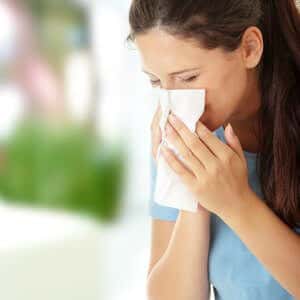
When people start sniffling and sneezing because of seasonal allergies, they usually rely on antihistamines and nasal sprays. A new study suggests that they might also want to consider modifying the bacteria in their bellies.
Probiotics to Help People with Seasonal Allergies:
A double-blind placebo-controlled trial of 173 people with seasonal allergies found that those who took a probiotic for two months had significantly higher scores on an allergy-specific quality of life scale than those on an identical-seeming placebo. Their allergy symptoms also improved. The people in this study did not use an antihistamine on a regular basis.
Which Beneficial Bacteria Did the Probiotic Contain?
Probiotic products provide beneficial bacteria that might not be present in substantial numbers in the digestive tract. There is a huge range of possible bacteria as well as of dose. Consequently, researchers must specify which ones they tested.
The probiotic in this study (Kyo-Dophilus) was supplied by Wakunaga of America Co., Ltd., which also sponsored the research. It contained 3 billion colony forming units a day of Lactobacillus gasseri KS-13, Bifidobacterium bifidum G9-1 and Bifidobacterium longum MM-2.
How Do Probiotics Work?
Kyo-Dophilus was shown in a previous study to stimulate production of Interleukin-10, which may help the body tolerate allergens. During the study, the balance of intestinal bacteria shifted toward types that are thought to be more beneficial.
Scientists don’t yet understand exactly how the intestinal microbiota affect the immune system, particularly with respect to allergies. These investigators suggest that probiotics might be most helpful in preventing allergies if they were used early in life, when the immune system is still developing. They also conclude:
“Our study demonstrates a potential benefit for healthy adults with self-identified seasonal allergies when the probiotic is administered starting at the greatest level of allergy symptoms. Prophylactic administration of the probiotic might potentiate the beneficial effects observed in this study.”
Dennis-Wall et al, American Journal of Clinical Nutrition, online, Feb. 22, 2017
We will watch for further research to confirm or refute these findings.

